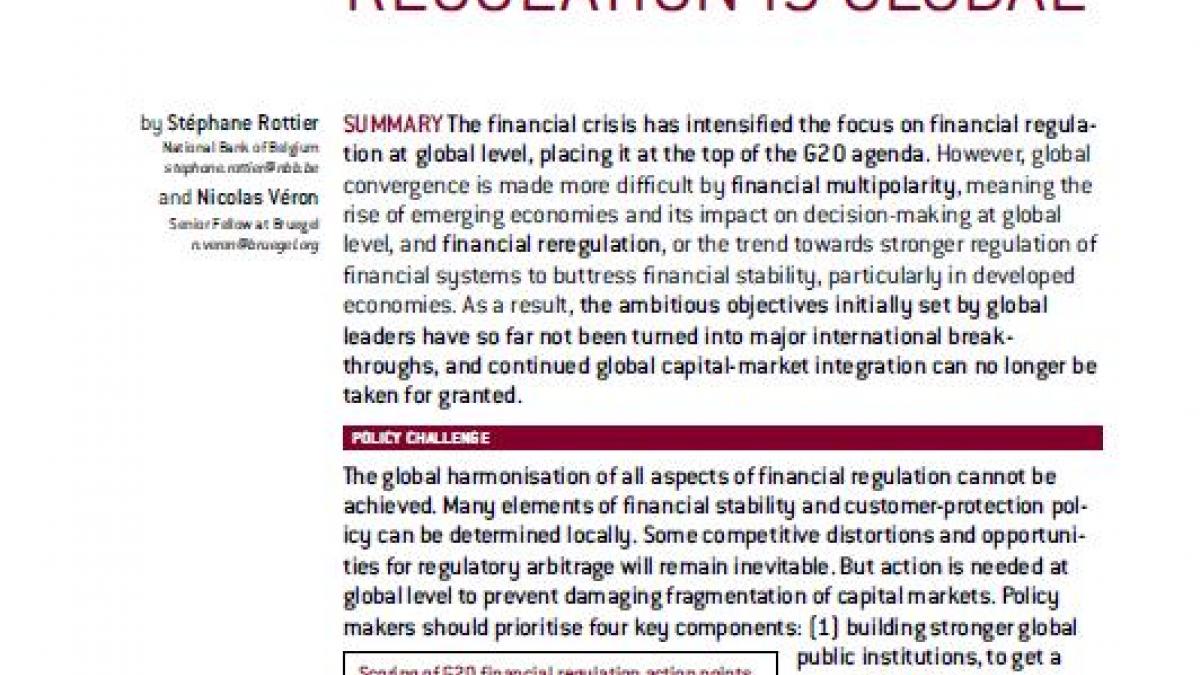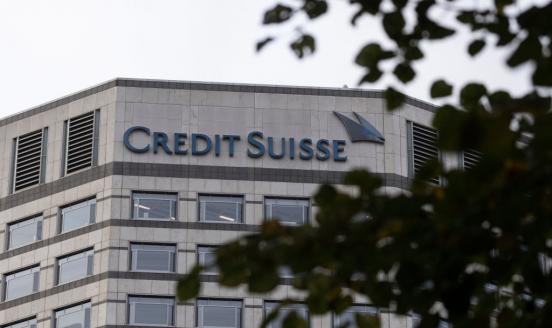Not all financial regulation is global
Financial regulation at global level has been high on the G20 agenda. However, financial multipolarity, with the rise of emerging economies, and its i

Summary
The financial crisis has intensified the focus on financial regula-tion at global level, placing it at the top of the G20 agenda. However, global convergence is made more difficult by financial multipolarity, meaning the rise of emerging economies and its impact on decision-making at global level, and financial reregulation, or the trend towards stronger regulation of financial systems to buttress financial stability, particularly in developed economies. As a result, the ambitious objectives initially set by global leaders have so far not been turned into major international break-throughs, and continued global capital-market integration can no longer be taken for granted.
Policy Challenge
The global harmonisation of all aspects of financial regulation cannot be achieved. Many elements of financial stability and customer-protection pol-icy can be determined locally. Some competitive distortions and opportuni-ties for regulatory arbitrage will remain inevitable. But action is needed at global level to prevent damaging fragmentation of capital markets. Policy makers should prioritise four key components: (1) building stronger global public institutions, to get a comprehensive analytical pic-ture, set authoritative stan-dards, and foster and monitor the consistency of regulatory practice; (2) globally consis-tent financial information; (3) a globally integrated capital-markets infrastructure; and (4) addressing competitive distortions among global cap-ital-market intermediaries.



